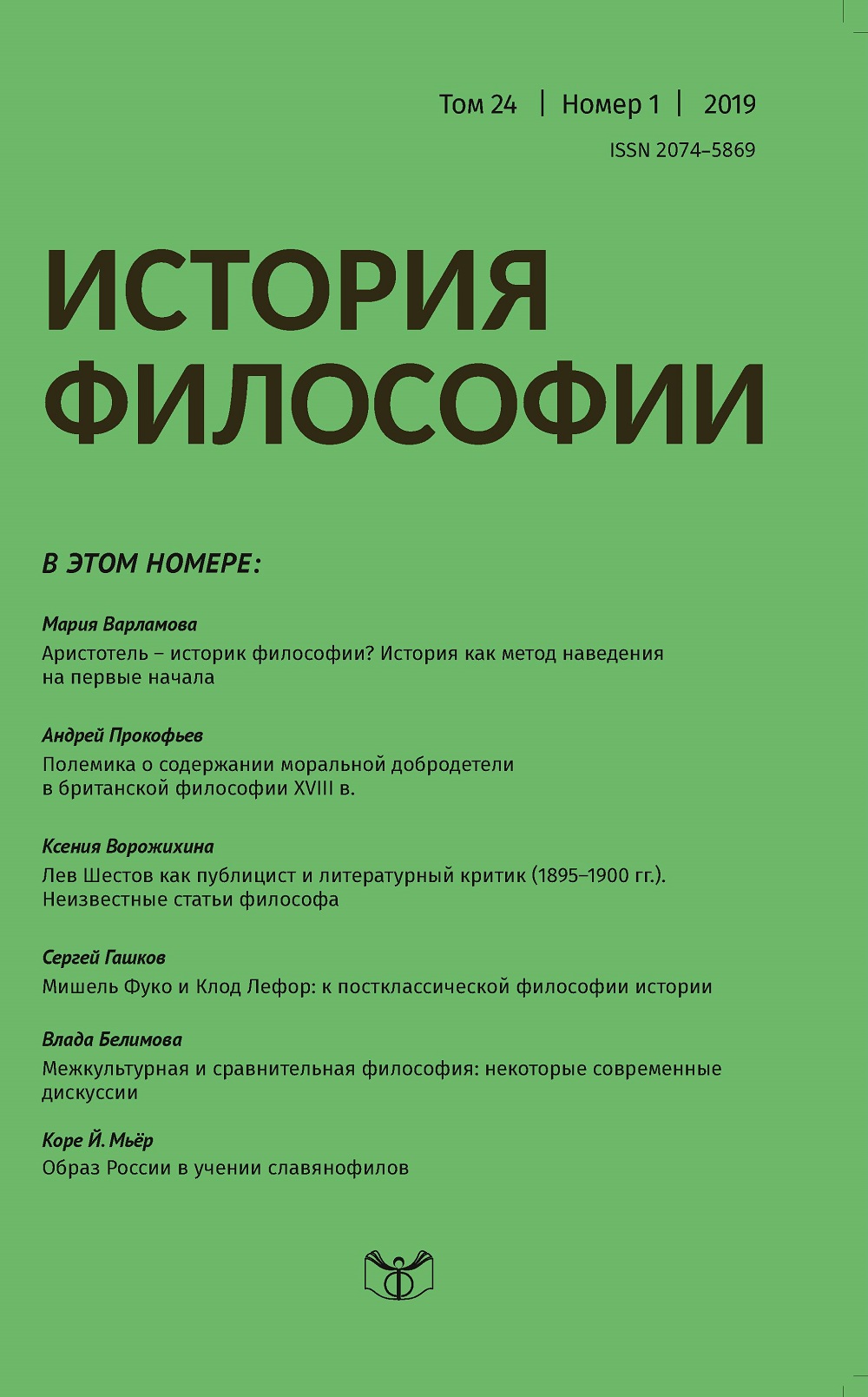Aristotle as a Historian of Philosophy. History as a Method of Inductive Reasoning of the First Principles
Keywords:
Aristotle, metaphysics, history of philosophy, induction, principles, dialecticAbstract
Aristotle prefaces a range of his philosophical treatises with the description of views of his predecessors. The modern researchers agree on that the description should not be recognized as a history
of philosophy, for its purpose was not doxography but reflection and consideration of the subject
and principles of his own philosophy. Most probably, Aristotle’s account of the predecessors is
a part of his own philosophical method. His method can be described as a proceeding from what
is clearer and more knowable to us, to what is clear and more knowable by nature. This method is
composed of two parts: induction to the existence of the principles on the basis of predecessors’
accounts; investigation and acquiring the definition of the principles by the dialectical analysis
of the predecessor’s views. The usage of this method depends on the Aristotelian conception
of history of philosophy within the frames of teleology

